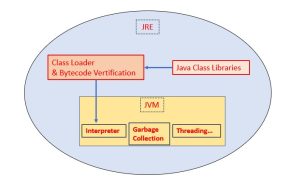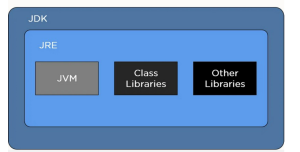1. What is JVM?
JVM stands for Java Virtual Machine. It consider as a heart of whole application. It transfer byte code into machine code and run the application.
What is the function of JVM

Firstly, java source will be compile into bytecode by Javac compiler
After that JVM is responsible for interpreting bytecode into machine code.
And this process don’t depend on platform. You can install JVM in Linux, Window, MacOs. Each platform has it’s own JVM system.
Therefore, Java is platform-independent
2. What is JRE?

JRE is an evironment to execute Java applications. It consists of JVM and nescessary libraries like Java.Lang, Java.Utils, …. It can run applications because it has JVM
But it don’t have any complier
-> it just only execute complied code.
3. what is JDK

JDK stands for Java Development Kit. It consists of JRE and some development tool like javac complier and debugging tool.
JDK focuses on development purpose while jre focuses on executing application
The JDK can be deployed on different Java Platforms released by Oracle Corporation
- Java SE (Java Platform Standard Edition): build simple applications
- Java EE (Java Platform Enterprise Edition): web or enterprise application development.
- Java ME (Java Platform Micro Edition): build compact mobile applications.
The choice of the above platform to use depends entirely on the type of project being undertaken.

